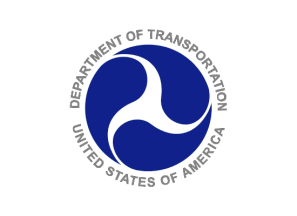Funding made possible by the Bipartisan Infrastructure Law will go to 25 passenger rail projects in seven states along the Northeast Corridor, the latest investment in rail projects across the country
Rail investments are a key part of Bidenomics and the President’s Investing in America agenda
WASHINGTON, D.C. – The U.S. Department of Transportation’s Federal Railroad Administration (FRA) today announced it has awarded $16.4 billion for 25 passenger rail projects along the Northeast Corridor (NEC), a railroad line running between Boston and Washington, D.C. This particular line is one of the highest volume passenger rail corridors in the world and the busiest in the United States, with hundreds of thousands of daily riders. It also supports billions of dollars in annual economic activity, making it key to the national economy. Projects were selected through the Bipartisan Infrastructure Law’s Federal-State Partnership for Intercity Passenger Rail Program (Fed-State NEC).
This unprecedented rail announcement, which will support over 100,000 good-paying construction jobs and advance Gateway Program projects, is a massive step forward as President Biden advances a vision for world-class passenger rail. It is also the latest in a series of major rail investments made under the Biden-Harris Administration to build the modern rail network Americans need and deserve. Today’s investment will overhaul infrastructure that outdates 99% of all living Americans by replacing or upgrading 12 major bridges and tunnels that are over 100 years old. Such aged infrastructure causes delays and increased travel time for passengers. Addressing these major backlog projects and advancing planning studies will ensure future progress for an improved national rail network.
Taken together, these investments will upgrade tunnels, bridges, tracks, power systems, signals, stations, and more, allowing for increased speeds, reduced travel time, and a more reliable experience for riders. This means modernizing and strengthening a mode of transportation that produces fewer emissions compared to driving or flying. This announcement comes as demand for passenger rail continues to grow along the NEC, with this summer’s Amtrak ridership surpassing pre-pandemic numbers.
“Under President Biden, we are finally delivering the generational investments in passenger rail that Americans have wanted for years, including modernizing the busiest rail corridor in the country,” said U.S. Transportation Secretary Pete Buttigieg. “These investments will make our busiest passenger railroad safer, faster, and more reliable, which means fewer delays and shorter commutes for the 800,000 passengers who rely on the Northeast Corridor every day.”
“The President’s investments in rail are the boldest ever, and they’re going to bring immediate benefits to communities and the economy while laying the foundation for generations of growth,” said FRA Administrator Amit Bose. “On the heels of 70 nationwide rail projects announced last month—projects funded through FRA’s CRISI program that will make freight rail safer and strengthen supply chains—today’s investment will help ensure essential rail corridors like the Northeast Corridor are modern, safe, and convenient, giving Americans access to world-class passenger service.”
Vital to the American economy, the area the NEC spans accounts for 24 million jobs and 20% of the national GDP, while serving 800,000 intercity passengers riders, commuters, and travelers daily. Despite its national importance, the corridor hasn’t seen major federal investment in generations. Thanks to President Biden’s Bipartisan Infrastructure Law and Investing in America Agenda, investments are now being made in more communities than ever before along the corridor, and compared to previous years, today’s announcement includes nearly four times as many selected projects nearing construction.
Examples of major Fed-State NEC projects moving forward with new funding include:
- New Jersey/New York – Gateway Program: Hudson Tunnel Project Systems and Fit Out (Up to $3,799,999,820)
The project includes final design and construction of the Hudson River Tunnel project and rehabilitation of the existing 113-year-old North River tunnels. Construction will include installation of track, signals, traction power, ventilation, fire and life safety systems, and other necessary systems work in the new Tunnel. As matching funds, the Gateway Development Commission (GDC) will provide approximately $950 million as part of a financing package through DOT’s Railroad Rehabilitation and Improvement Financing (RRIF) loan program. For the larger Hudson Tunnel Project: FRA has committed an additional $912 million through Amtrak; FTA has determined a contribution of up to $6.88 billion under their Capital Investment Grants program; USDOT has provided $25 million through the Rebuilding American Infrastructure with Sustainability and Equity (RAISE) program; and GDC will provide additional RRIF funds as part of the financing package.
- Maryland – B&P Tunnel Replacement Program: Frederick Douglass Tunnel (Up to $4,707,571,556)
The proposed project includes final design and construction of the Baltimore and Potomac tunnel replacement, to be known as the Frederick Douglass Tunnel. The project constructs a new two-track tunnel for passenger rail use, three ventilation facilities, and an approach track. The project also reconstructs associated railroad and roadway bridges in the project area and rebuilds the West Baltimore commuter station to accommodate the new railroad alignment and upgrade the station to fully accessible high-level platforms. Upon completion, speeds along this segment will increase from 30 mph to 110 mph, eliminating the slowest section of mainline track between Washington, D.C., and New York City. The tunnel is used by Amtrak’s intercity services and Maryland Area Regional Commuter Penn Line service.
- Maryland – Susquehanna River Bridge Replacement Program (Up to $2,081,215,100)
The project includes final design and construction for two new fixed, two-track bridges over the Susquehanna River between Havre De Grace and Perryville, Maryland, replacing the current 117-year-old, two-track structure that is beyond its useful life. The new spans will improve upon the 90-mph speed on the current structure, with one span designed for 125-mph operation and the other for up to 160-mph operation, reducing travel time for thousands of daily passengers along the NEC. Amtrak’s intercity services, Maryland Area Regional Commuter service, and freight service use the crossing. The project will improve state of good repair and provide additional capacity to meet future growth. Amtrak and the State of Maryland will collectively provide $520 million in matching funds.
- Connecticut – Connecticut River Bridge Replacement (Up to $826,645,100)
The project includes construction to replace the existing Connecticut River bridge between Old Saybrook and Old Lyme, Connecticut, with a modern and resilient moveable bridge immediately to the south of the existing structure. The existing Amtrak-owned 116-year-old bridge poses a risk of long-term major disruption on the NEC due to its age and condition. The replacement bridge would maintain the two-track configuration and existing channel location and provide a bascule moveable span with additional vertical clearance for maritime traffic. The bridge serves the NEC main line and is used by Amtrak’s intercity services, Connecticut Shore Line East commuter service, and freight operators. The new structure will improve safety, reliability, and increase operating speed for all operators. Amtrak will provide $148 million, and Connecticut will provide $58 million in matching funds.
- New York – East River Tunnel Rehabilitation (Up to $1,261,851,977)
The project includes final design and construction of the East River Tunnels in New York City. The tunnels are used by Amtrak’s NEC services, Long Island Rail Road, and New Jersey Transit for a total of more than 400 daily trains. The 100-plus-year-old structure has four tracks, and this project will fund full rehabilitation of tracks 1 and 2, with installation of a new direct fixation track, traction power, drainage systems, signals, communication systems, and fire and life safety upgrades throughout the tunnel. Damage to the tunnels from Superstorm Sandy will be fully remediated, returning tracks 1 and 2 to a state of good repair and preparing the tunnels to accommodate future growth. Amtrak is contributing $55 million, the New York Metropolitan Transportation Authority is contributing $175 million, and New Jersey Transit is contributing $85 million in matching funds.
The historic infrastructure law invests heavily in passenger rail, notably through the Federal-State Partnership for Intercity Passenger Rail Program, and the dozens of funded projects will create over 100,000 jobs as well as new opportunities for small businesses. In total, the program will make available $36 billion over the next five years, with $24 billion for projects on the NEC and $12 billion for intercity passenger rail projects and high-speed rail projects nationwide. Nationwide grants through the Fed-State program will be announced in the coming months, building on previous rail investment announced earlier this year, including the new Rail Crossing Elimination (RCE) grants and the Consolidated Rail Infrastructure Safety Improvement (CRISI) grants.
For the full list of Fiscal Year 2022-2023 Fed-State NEC project selections, please click here.
Official news published at https://www.transportation.gov/briefing-room/president-biden-advances-vision-world-class-passenger-rail-16-billion-investment
The post President Biden Advances Vision for World Class Passenger Rail with $16 Billion Investment in America’s Busiest Corridor first appeared on Reliable News.




More Stories
INVESTING IN AMERICA: Biden-Harris Administration Strengthens Transit Manufacturing Industry with $1.5 Billion from Bipartisan Infrastructure Law to Put More American-Made Buses on the Road
Biden-Harris Administration Announces Funding for 15 Small Shipyards in 12 States to Boost Productivity and Create Jobs
FRA Makes Available $153 Million in Funding to Initiate, Restore, and Enhance Intercity Passenger Rail Services